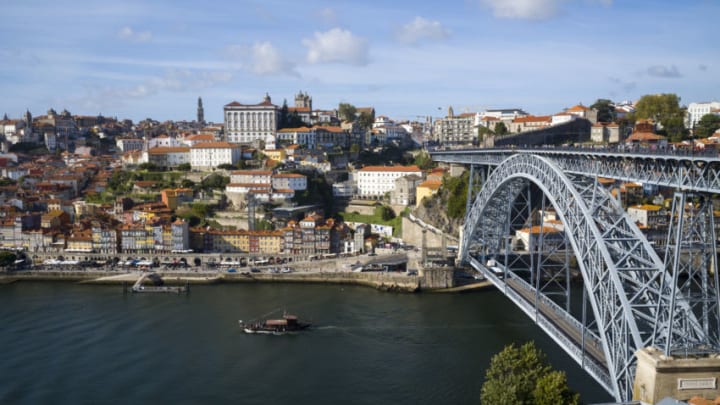Porto, Portugal is located in the northwest of the country and sits on the banks of Douro River, which cuts a path from the Atlantic Ocean and winds through the city before heading into Spain.
The port’s and riverbanks have long been a hive of activity in Portugal’s second-largest city, which transports grapes, olives and Porto’s famous tipple, Port Wine, all over the world.

Another vibrant, cultural feature of this historic city is Fado music. The sound spread from Lisbon and around Portugal, with sailors and Porto’s working classes embracing the art form.
Fado is believed to mean “fate” or “death” and is a mournful, melancholic musical genre combining stringed instruments and emotive vocals. In 2011, UNESCO added Fado music to its Intangible Cultural Heritage of Humanity list.
You can join a walking tour to Casa Da Guitarra (House of Guitars), a mere five-minute walk from the Douro River, and is surrounded by bars, restaurants, cafès and places of interest.
At Casa Da Guitarra, they house impeccably crafted stringed instruments, host shows, exhibitions and offer short classes. Their Fado show is an hour-long performance in an intimate setting with a glass of Port during the intermission.
If you want to vary your evening, you can have a sit-down meal, drinks and a live show at nearby Típico O Fado (Typical Fado).
Serving a diverse Mediterranean menu that includes vegetarian and gluten-free options, you can mix up your refreshments with soft drinks, red and white wines and a selection of beers.

The lively and cosy venue has maintained its century-old building facade with decor harking back to the early 1900s.
A family-run restaurant, Típico doesn’t short change its guests, with the large portions filling you up before you head along the Douro embankment to the Ponte Luís I bridge and into Vila Nova de Gaia.
Here, south of the river, you’ll find Porto Cálem, who have exported Port since the mid-1800s. The company took advantage of the trade routes with Britain and forged a path to Brazil, which opened up the world to their locally harvested wines.
There is a bike-riding tour around the Douro Valley where Cálem collects their fruit and olives for their world-renowned vineyard where your helpful tour guide demonstrates the production process.

Cálem offers tours of their famous cellars where you can enjoy a wine tasting experience and take in a Fado gig. The customary female vocalist is flanked by two acoustic guitarists who fill the celebrated venue with its unique sound.
Porto has embraced the national art form has created and continued the popularity of locally made wine. The Douro River is central to the cities history and continued appeal among tourists.
It offers the chance to appreciate the city and explore on foot, bike and boat to engrosses yourself in Portugal’s many fascinating traditions.
